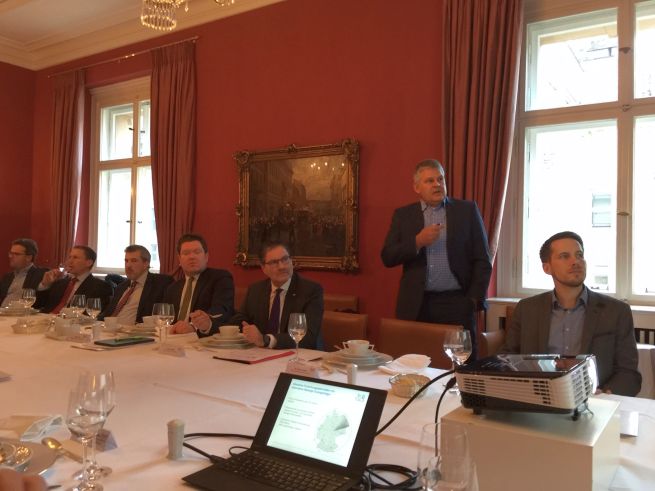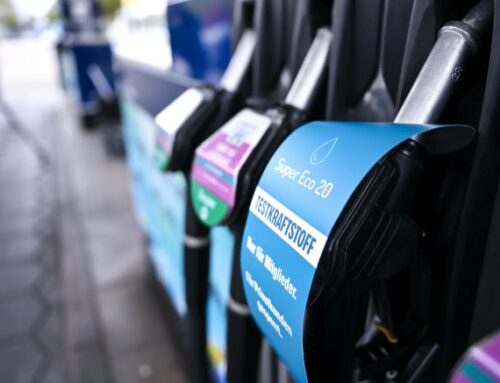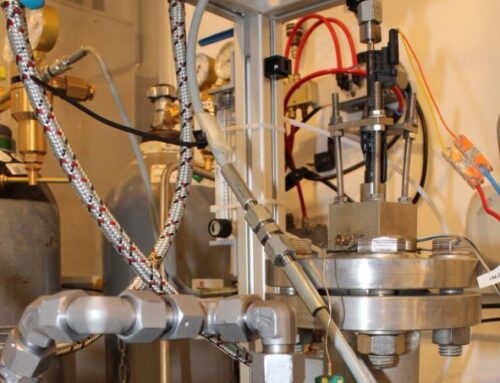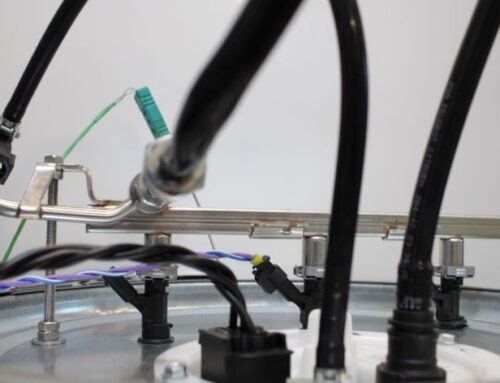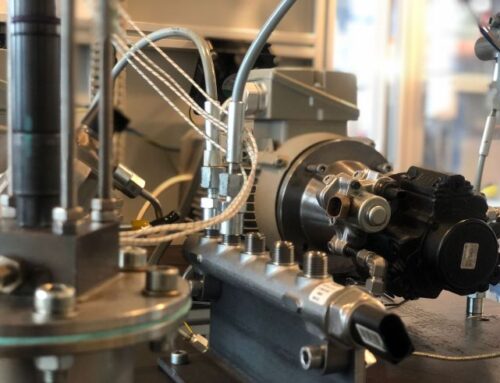4 January 2019 –
Parliamentary Lunch for SPD Members of the Bundestag.
On 12 December 2018, the Institute für Wärme und Oeltechnik invited members of the SPD parliamentary group (Social Democratic Party of Germany) as well as scientific staff to a parliamentary lunch in Berlin under the title “The role of liquid energy sources – today and tomorrow”. IWO Managing Director Adrian Willig kicked off the event with a presentation on the current importance of liquid energy sources and their future potential.
Dr. Klaus Lucka from TEC4FUELS GmbH then presented current research projects on low-greenhouse gas liquid fuels. Science and industry are already working on new CO2-reduced liquid fuels. These include projects that are still in the laboratory developing the basics for later practical application, as well as demonstration and pilot plants that are already producing new fuels for test purposes. In his lecture, Klaus Lucka pointed out that five to eight technologies have already reached an advanced level of technological readiness. Their raw materials are mostly residues and waste materials from biomass and in other cases they are also purely electricity-based. The requirements for new liquid fuels are high. It is essential that they meet the demanding requirements of the EU’s Renewable Energy Directive. In addition, they have to fulfil numerous other criteria, including their safe use with the existing infrastructure for liquid fuels. Furthermore, they should be compatible with older technical systems (engines, heating systems, etc.) as well as with conventional fuels. It is therefore important that they can be easily mixed with petrol and diesel (“drop-in quality”). And last but not least, they must also be accepted by customers.
Dr. Alexander Tremel of Siemens AG reported on the global potential of Power-to-X technologies, both with regard to achieving climate protection targets and against the background of industrial value creation. In the ensuing discussion, the MEPs made it clear, among other things, that all technologies should be taken into account to achieve climate protection goals and that the contribution of liquid energy sources should therefore be more strongly recognized in the future than today.
